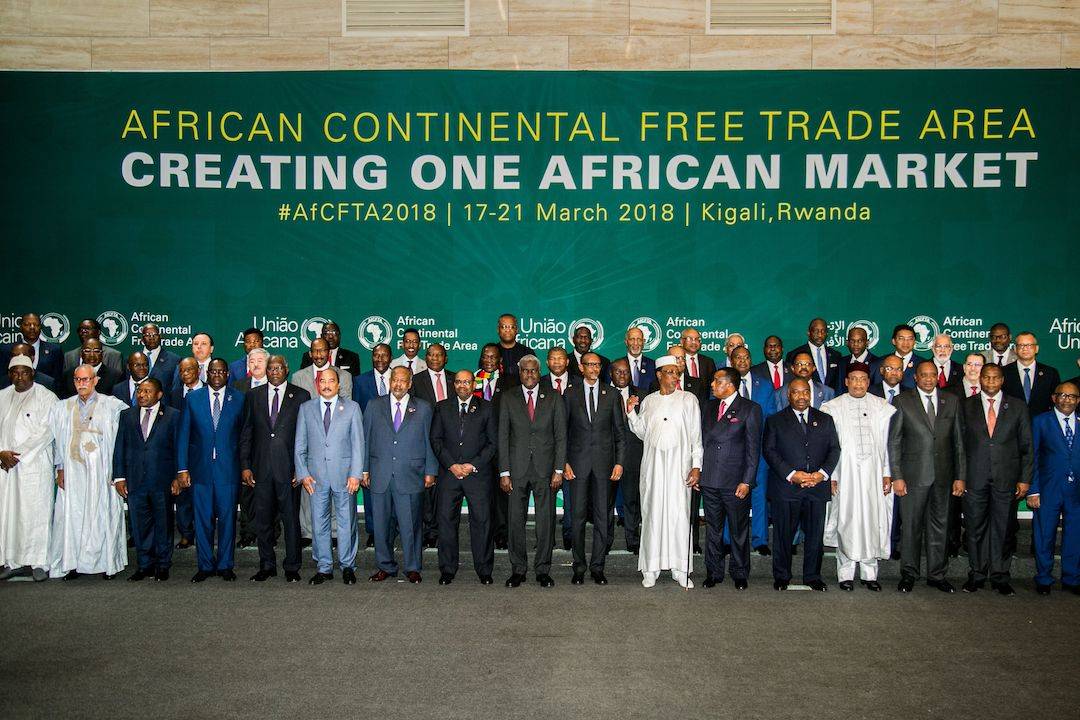What Africa’s Free Trade Agreement Means for Businesses

The African Continental Free Trade Area (AfCFTA) came into effect last May 30, with 54 states signing the agreement at the time of writing. This pan-African agreement was made in the hopes of bolstering local economies by breaking down existing trade barriers and reducing tariffs for regional exchange. Nigeria has just signed onto this agreement — a monumental feat considering that the country represents Africa’s largest economy.
About the agreement
The AfCFTA is poised to be the world’s largest trading bloc. This bloc will economically join over a billion people, with experts hoping that this will speed up modernisation efforts across the continent. Africa’s labour force has been steadily growing, and with the businesses promoted by the AfCTA creating new jobs, there will be further growth.
The beginnings of the AfCFTA started in 2012, when leaders at the African Union summit began grappling with the idea of free trade across Africa. Negotiations officially began during the 2015 summit, and a total of ten negotiating sessions were held before reaching the final agreement in 2018.
Experts estimate that this agreement will kick-start Africa’s growth on its way to become a huge economic player. Possible developments include free movement of people across the continent’s borders and the adoption of a single currency.
What does this mean for intra-African business?
Africa News reports that trade between African countries is the continent’s weak spot, citing lack of infrastructure and investment. They estimate that about $300 billion will be needed by 2020 in order to build the infrastructure needed.
This is the case despite the African Development Bank Group saying that intra-African trade is a must for sustainable development. This trade accounts for around 15% of Africa’s total output, a small figure when taking into consideration the continent’s labour force.
With more Africans seeking better opportunities elsewhere, the AfCFTA hopes to promote African businesses as the main source of jobs for locals. Africa is currently the second most populated continent in the world (with research speculating that it will surpass Asia within a decade or two), which also opens up the potential for keeping businesses rooted locally.
What about Africa’s trade with other countries?
This growth has led to other countries to start investing heavily in the continent, with Africa and Japan strengthening trade ties this year. Business leaders from Africa and Japan met at the Tokyo International Conference on African Development (TICAD) to discuss how they can increase their business investments with each other. Satoshi Ozawa, co-chairman of the sub-Saharan affairs committee of Keidanren said at the event: “With abundant natural resources and a steadily increasing population, the African economy has high growth potential. It is developing into a region that attracts global attention.” Japanese investment in Africa had been falling as the country’s biggest firms concentrated on Asian markets. This promise to increase investment follows a trend in Japan, where it has been aggressively opening up its businesses to foreign ventures. The best example of this is how Japan legalised the construction of casinos to boost foreign investment. The country hopes that this will increase the economy and the number of tourists. ExpatBet’s guide to Japan notes how gambling was banned for both residents and foreigners with only sports betting legalised. This will now change as Japan creates its own gaming industry. This boost to the economy will have positive knock-on effect that will help with the new investment deals being generated at the TICAD.
Another example is China. All across Africa, we are seeing local Chinese stores like Miniso setting up shop. Of course, this is just one of many more, but it shows how many countries are increasingly seeing Africa as the next big place to invest. With so many small and large-scale partnerships coming in from outside of Africa, it is unlikely that the AfCFTA will replace them completely. The efforts that come through the AfCFTA will work alongside these current partnerships in the hopes of innovating businesses across Africa.
Image credit: Fortune